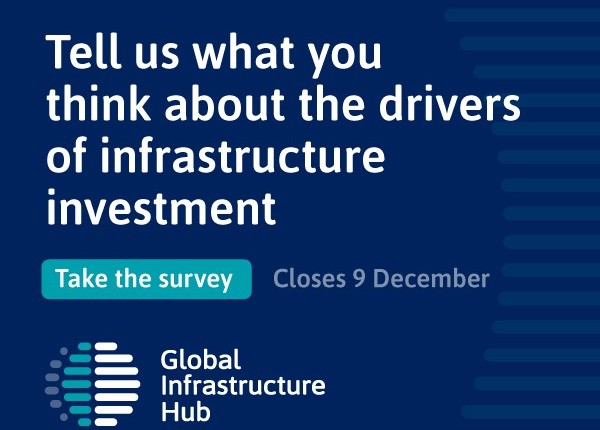922 results found
Featured results



More results
The purpose of this study is to provide an overview of the main elements that should be taken into consideration when evaluating the potential for specific projects, it is important to give some indication of potential cost (capital and operating) of an LNG chain.

This report provides an outline ending in 2015 of ASEAN connectivity, the report also outlines future challenges the Master Plan from 2015 on.

Mobility as a Service (MaaS) uses a digital platform to integrates end-to-end trip planning, booking, ticketing, and payment across all modes of transportation.
This PPIAF-funded report aims to discuss and disseminate information on how Islamic finance has been applied in infrastructure projects through PPP schemes, what the structural challenges and solutions are, and what can be done to deepen and maximise the use of Islamic finance for this purpose.
We introduce and apply the concept of spillover effects to high-speed rail (HSR) development to formulate the economic impact on increasing the regional tax revenue.

Transparency International Australia is launching a new project to identify the loopholes that enable corruption to thrive in the infrastructure sector in the Asia-Pacific region. The first step in this project is the development and testing of a new tool, to help understand corruption risks in transnational infrastructure projects in the Asia-Pacific region. The Infrastructure Corruption Risk Assessment Tool will help its users identify, assess and address corruption risks in the process of approving infrastructure projects. The global demand for infrastructure, and many governments’ eagerness to facilitate large volumes of infrastructure spending, means this tool comes at a critical time. Many countries, including the UK, Australia and France, as well as countries in the Asia-Pacific, have responded to the economic downturn caused by the coronavirus pandemic with commitments to boost infrastructure spending. While this increased funding is welcome, it comes with an increased risk of corruption.
With a people-centred vision, the Argentine G20 Presidency placed sustainable development at the forefront of the G20 agenda in 2018, under the theme Building consensus for fair and sustainable development .
This certification program aims to enhance PPP performance globally. Individuals awarded the Certified PPP Professional (CP3P) credential demonstrate to peers that their abilities align with global PPP good practices.

Infrastructure Finance in the Developing World: Multilateral Lending Instruments for Infrastructure Financing - A report by the G-24 and the Global Green Growth Institute (GGGI). This paper is part of The Infrastructure Finance in the Developing World Working Paper Series, which is a joint research effort by GGGI and the G-24 that explores the challenges and opportunities for scaling up infrastructure finance in emerging markets and developing countries.
This paper assesses the challenges and trade-offs faced by the three major NDBs in emerging economies in their efforts to (1) reach the goals set by their governments, (2) obtain the resources needed to function at a meaningful scale, and (3) operate within their unique economic and political contexts.
Delivering quality infrastructure will increasingly become a key priority for governments globally, requiring substantial investment from both the public and the private sectors.

The aim of this PPP-Readiness Self-Assessment is to provide a diagnostic tool for identifying the key areas that governments need to address in order to involve the private sector more actively in the infrastructure development process.


Small, steady and incremental reforms can have a major impact on driving sustainable, resilient and inclusive infrastructure.
InfraTracker is an open access tool that shows how much governments invest in infrastructure, and how they allocate this investment. It is the first tool of its kind and scale to be developed with the cooperation of G20 governments.
The Leaders' Declaration from the New Delhi G20 Leaders' Summit of 9-10 September 2023

To increase understanding and improve the consideration of circular infrastructure, the GI Hub has formed a Circular Economy in Infrastructure Action Group that includes global, senior leaders in circular economy and infrastructure across the public and private sector.
Read more about Infrastructure Futures, our new report looking at the key megatrends with the potential to disrupt the industry through to 2050.
The GI Hub wants to hear your views on the policies and practices that enable greater investment in infrastructure.
The Guidance Note, developed by the GI Hub in collaboration with Cambridge Economic Policy Associates Limited (CEPA), identifies lessons learned from various existing NIBs in both emerging markets and high-income countries through 11 case studies which explore different NIBs that have existed from 1945.
The Output Specifications for Quality Infrastructure Reference Guide, helps governments to operationalise the definition of Quality Infrastructure Investment agreed on by G20 nations.






 National Infrastructure Banks
National Infrastructure Banks








